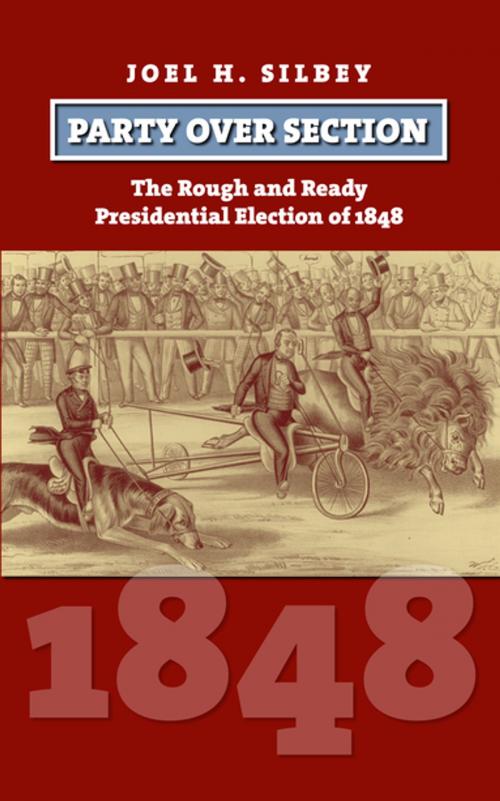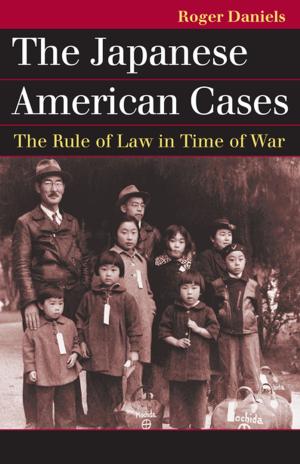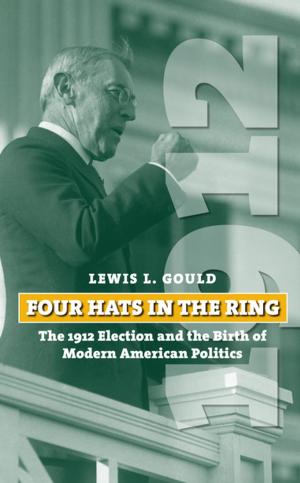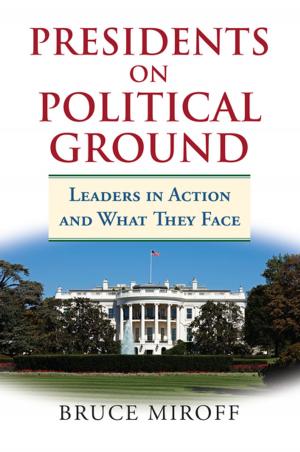Party over Section
The Rough and Ready Presidential Election of 1848
Nonfiction, Social & Cultural Studies, Political Science, Government, Elections, Politics, History & Theory, History, Americas, United States, 19th Century| Author: | Joel H. Silbey | ISBN: | 9780700625383 |
| Publisher: | University Press of Kansas | Publication: | October 20, 2017 |
| Imprint: | University Press of Kansas | Language: | English |
| Author: | Joel H. Silbey |
| ISBN: | 9780700625383 |
| Publisher: | University Press of Kansas |
| Publication: | October 20, 2017 |
| Imprint: | University Press of Kansas |
| Language: | English |
Choice Outstanding Title
The presidential campaign of 1848 saw the first strong electoral challenge to the expansion of slavery in the United States; most historians consider the appearance of the Free Soil Party in that election a major turning point of the nineteenth century. The three-way race capped a decade of political turmoil that had raised the issue of slavery to unprecedented prominence on the national stage and brought about critical splits in the two major parties.
In the first book in four decades devoted to the 1848 election, Joel Silbey clarifies our understanding of a pivotal moment in American history. The election of Whig Zachary Taylor, hero of the Mexican War, over Democrat Lewis Cass and Free Soiler Martin Van Buren followed a particularly bitter contest, a fierce political storm in an already tumultuous year marked by the first significant attempt by antislavery advocates to win the presidency.
Silbey describes what occurred during that election and why it turned out as it did, offering a nuanced look at the interaction of the forces shaping the direction of politics in mid-nineteenth century America. He explains how the Free Soilers went about their reform movement and why they failed as they ran up against the tenacious grip that the existing two-party structure had on the political system and the behavior of the nation's voters.
For Whigs and Democrats it was politics as usual as they stressed economic, cultural, and ideological issues that had divided the country for the previous twenty years. Silbey describes the new confrontation between the force of tradition and a new and different way of thinking about the political world. He shows that ultimately, when America went to the polls, northerners and southerners alike had more on their minds than slavery. Nevertheless, while Van Buren managed to attract only 10 percent of the vote, his party's presence foreshadowed a more successful challenge in the future.
Emphasizing both persistent party commitments and the reformers' lack of political muscle, Silbey expertly delineates the central issues of an election framed by intense partisanship and increasing sectional anger. If 1848 did not yet mark the death rattle of traditional politics, this insightful book shows us its importance as a harbinger of change.
Choice Outstanding Title
The presidential campaign of 1848 saw the first strong electoral challenge to the expansion of slavery in the United States; most historians consider the appearance of the Free Soil Party in that election a major turning point of the nineteenth century. The three-way race capped a decade of political turmoil that had raised the issue of slavery to unprecedented prominence on the national stage and brought about critical splits in the two major parties.
In the first book in four decades devoted to the 1848 election, Joel Silbey clarifies our understanding of a pivotal moment in American history. The election of Whig Zachary Taylor, hero of the Mexican War, over Democrat Lewis Cass and Free Soiler Martin Van Buren followed a particularly bitter contest, a fierce political storm in an already tumultuous year marked by the first significant attempt by antislavery advocates to win the presidency.
Silbey describes what occurred during that election and why it turned out as it did, offering a nuanced look at the interaction of the forces shaping the direction of politics in mid-nineteenth century America. He explains how the Free Soilers went about their reform movement and why they failed as they ran up against the tenacious grip that the existing two-party structure had on the political system and the behavior of the nation's voters.
For Whigs and Democrats it was politics as usual as they stressed economic, cultural, and ideological issues that had divided the country for the previous twenty years. Silbey describes the new confrontation between the force of tradition and a new and different way of thinking about the political world. He shows that ultimately, when America went to the polls, northerners and southerners alike had more on their minds than slavery. Nevertheless, while Van Buren managed to attract only 10 percent of the vote, his party's presence foreshadowed a more successful challenge in the future.
Emphasizing both persistent party commitments and the reformers' lack of political muscle, Silbey expertly delineates the central issues of an election framed by intense partisanship and increasing sectional anger. If 1848 did not yet mark the death rattle of traditional politics, this insightful book shows us its importance as a harbinger of change.















